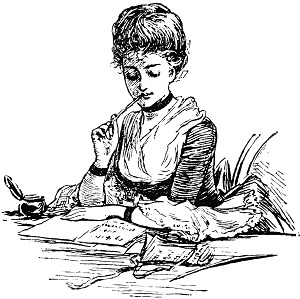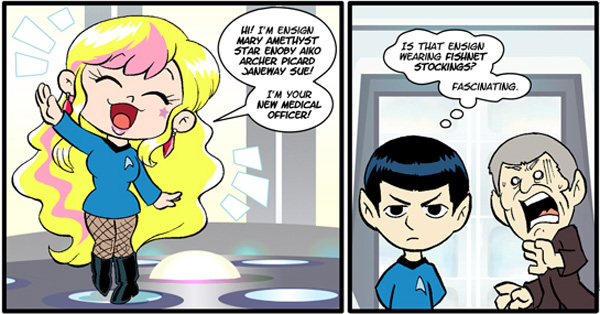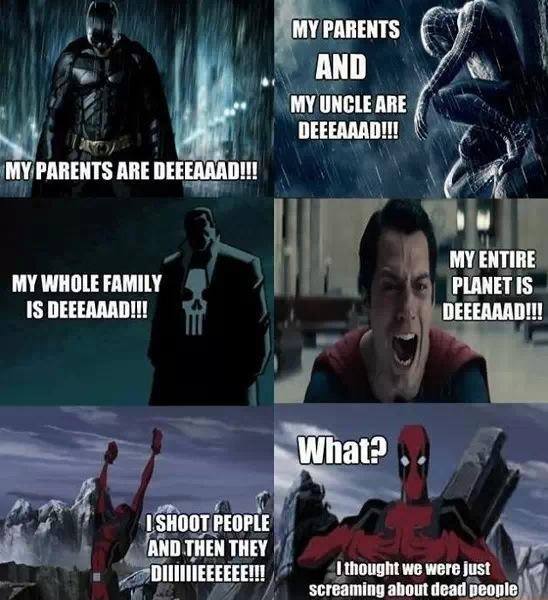
You’ve finished writing a thing – it might be a short story, a collection of poetry, a first novel, a seventh novel, or a screenplay. You’re pretty proud of it and you think you’re ready for a third-party to enter the relationship. You look up the details of someone to help whip your draft into ship shape before sending to an agent or a self-publishing platform.
So you prep your manuscript for invasive surgery (I'm assuming you're pretty serious about this thing you've written).
You run a final spellcheck, biopsy for lumps and bumps in each page, give it one last lingering look, exchange a final caress, and send it on its way.
Your editor receives it with cheer. Here lies a new project, a new body of work to eviscerate and explore. They’ll forgive the weird typos, the little mistakes symptomatic of a text loved too well to be fully torn apart by their author. They’ll enjoy peeling apart the sentences, marking up the lines where you’ve mixed your tenses, untangling inconsistencies as they stitch the plot back together.
Editors will love you for making them feel like surgeons of style, diction, plot and story.* But there are a few things that will turn them into butchers. Things that they see all the time. Things more irksome than the Avocado Song.
Plot, What Plot?

It’s all very well to want to write a novel where nothing happens like Flaubert, or to explore the failures of convention like Scarlett Thomas in Our Tragic Universe, or to try and be terribly clever like 80% of Man Booker longlistees. But they’re not devoid of plot, not really. Even in these wildly unconventional (for their time) novels they don’t completely alienate the idea of plot. They’re smuggled in there, as Vonnegut said, even if they’re turned on their head.
The Mary Sue / Gary Stu

There’s this concept in online writing circles known as the Mary Sue. Originating in Star Trek fanfiction, the Mary Sue was an original female character (OFC) introduced to the cast only to become an instantaneous hit. She’s beautiful, she’s skilled in literally everything, she’s Kirk’s lover (or Spock’s or both), she’s everyone else’s best friend, and if anyone doesn’t like her, that person must automatically be the bad guy. She’s essentially perfect or if she has flaws, they’re only there to make her look cuter (such as clumsiness – yes Bella Swan I’m looking at you). The male version of this is the Gary Stu or Marty Stu (depending on if you prefer rhyme or alliteration) and it whittles a character down to being an ‘Author Avatar,’ a special snowflake whereby a writer looks to capture their idealised self and idealised life on paper. Result? It usually sucks.
Deceased Parents are the Best

Unhappy childhoods, or lives full of traumatic events, are pretty much a staple backstory trope for those tragic, troubled characters. Now this can be done well. It can be used brilliantly. I'm not saying every Dead Parent Origin Story should be edited out. But it can be a pile of pure wangst. How do you veer away from the latter? Don’t focus on it. Forget the histrionics. Let their actions speak for themselves. Use characterisation instead of backstory to inform your reader. The only person who needs all the details is you.
The Rogue Effect

As my buddies over on Nerd Cactus once pointed out so succinctly, Rogue is the most over-powered X-Man of all time. She starts off with this power, which is awesome but awful, only to become unbeatable as all the bits that stopped her from being an all-powerful genie are relegated to the ashes of comic books past. And why? Because of lazy writing. Rogue is the Deus Ex Machina for all things mutant. When the writers need an escape from an impossible situation, Rogue’s powers develop exponentially in order to play the plot equivalent of a Get Out Of Jail Free card. Lazy. Boring. Don't do it. Rant over.
Pointless Extras
— Matt Johnson (@Matt_Johnson_UK) December 12, 2015
From entire scenes of extraneous detail to named characters who float into your manuscript only to disappear forever two pages later, pointless extras will almost always be cut out like a canker. It might be a beautiful image or a character you have a whole story established for in your head. But if it’s adding nothing to the novel at hand, prepare for the editorial slice and dice.
Grand Larceny

These days you'd be silly not to accept that some very successful writing derives from the world of fanfiction. Most editors aren’t too concerned about this. After all, it’s far from new. Alexander Pope essentially created an AU for the Latin poets and ancient gods. The Latin poets pretty much pilfered their best ideas from the Greeks. It’s all one ever-rolling stone when it comes to story and ideas and plots and characters. On the other hand, if your whole novel is a thinly veiled rewrite of Harry Potter, you might want to reconsider sending it to anyone. Just because you turned the Killing Curse blue and Harry’s hair blond, doesn’t mean editors won’t roll their eyes and ding your manuscript. Make something your own, however, and you might just end up as the next Cassandra Clare.
Trauma Patients

If editors can be said to be surgeons, it is important to note they are not trauma surgeons. They’re the general surgeons, the cardio-gods, the neuro-experts, with specialities specific to their skillset. If your novel is a raw, open, bleeding first draft and you think it’s ready for third-party insight, think again. When you’ve typed those last few words onto the page, breathed in the pride of having finished, put that manuscript into the ICU – reread it, rewrite it, edit it yourself before you fob it off on someone to try to resuscitate. Don't rush, we'll be waiting for when you need us.
Je serai poète et toi poésie,
SCRIBBLER
* This has nothing to do with being paid to read books of course.
* This has nothing to do with being paid to read books of course.

No comments:
Post a Comment
Scribble Back